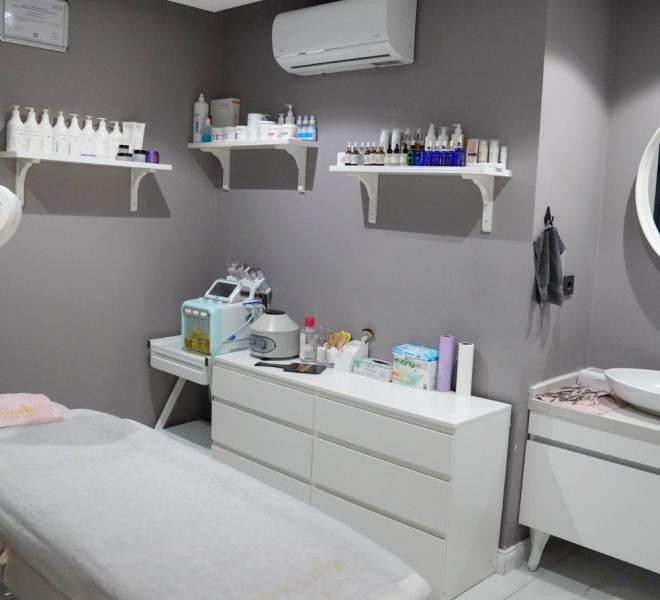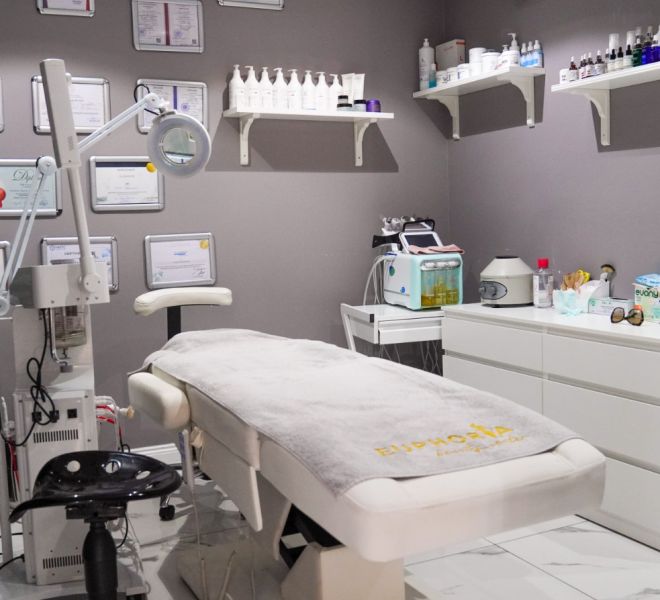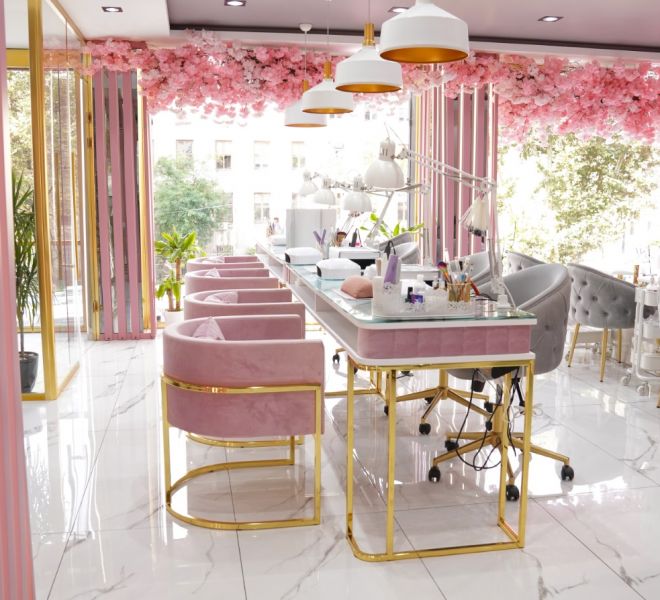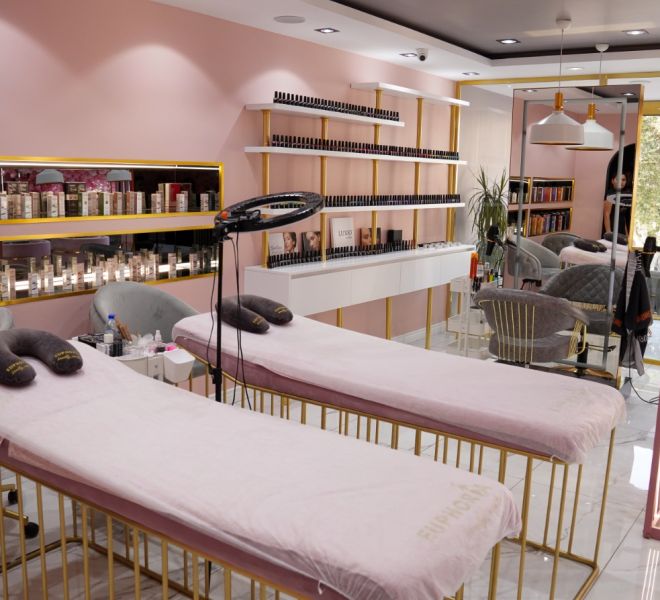Acne therapy refers to the treatments used to manage and treat acne. Acne is a skin condition that affects millions of people worldwide, and it is characterized by the appearance of pimples, blackheads, and whiteheads. Acne can be caused by a variety of factors, including genetics, hormones, and environmental factors such as diet and stress.
What is Acne therapy?
Acne can be a frustrating and embarrassing condition, and it can have a significant impact on a person’s self-esteem and confidence. However, with the right treatment, acne can be managed and even eliminated.
In this article, we will explore the different types of acne therapy available, including topical treatments, oral medications, and skincare products. We will also discuss the importance of proper skincare and lifestyle habits in managing acne.
Types of Acne
Before we dive into the different types of acne therapy, it is important to understand the different types of acne. There are several types of acne, including:
- Whiteheads: These are small, white bumps that occur when pores become clogged with oil and dead skin cells.
- Blackheads: These are similar to whiteheads, but the pores are open, which causes the oil and dead skin cells to oxidize and turn black.
- Papules: These are small, red bumps that occur when the hair follicles become inflamed.
- Pustules: These are similar to papules, but they contain pus.
- Cysts: These are large, painful bumps that occur deep in the skin and are filled with pus.
Now that we have a better understanding of the different types of acne, let’s explore the different types of acne therapy.
Topical Treatments
Topical treatments are medications that are applied directly to the skin. They are typically the first line of defense in managing acne. Topical treatments work by reducing oil production, unclogging pores, and killing bacteria.
- Benzoyl Peroxide: Benzoyl peroxide is a topical medication that is effective in reducing the number of bacteria on the skin. It also helps to unclog pores and reduce inflammation.
- Salicylic Acid: Salicylic acid is a type of beta-hydroxy acid that helps to unclog pores and reduce inflammation. It is effective in treating mild to moderate acne.
- Retinoids: Retinoids are vitamin A derivatives that work by unclogging pores and reducing inflammation. They also help to improve the overall texture and tone of the skin.
Oral Medications
In some cases, topical treatments may not be enough to manage acne. In these cases, oral medications may be prescribed. Oral medications work by reducing oil production, killing bacteria, and reducing inflammation.
- Antibiotics: Antibiotics are medications that are effective in killing bacteria. They are often prescribed for moderate to severe acne.
- Birth Control Pills: Birth control pills are often prescribed to women who have acne that is related to hormonal imbalances. Birth control pills work by regulating the hormones that can contribute to acne.
- Isotretinoin: Isotretinoin is a powerful medication that is effective in treating severe acne. It works by reducing oil production and unclogging pores. However, it can have serious side effects and should only be taken under the guidance of a healthcare professional.
What are the benefits of Acne therapy?
Acne therapy is the treatment used to manage and treat acne, a common skin condition that affects millions of people worldwide. Acne can be a frustrating and embarrassing condition, and it can have a significant impact on a person’s self-esteem and confidence. However, with the right treatment, acne can be managed and even eliminated.
In this article, we will explore the benefits of acne therapy, including improved skin health, increased self-esteem, and reduced risk of scarring.
Improved Skin Health
One of the most significant benefits of acne therapy is improved skin health. Acne therapy works by reducing oil production, unclogging pores, and killing bacteria. By doing so, it helps to prevent new breakouts and heal existing ones.
In addition to reducing acne, acne therapy can also improve the overall health of the skin. Skincare products, in particular, can help to improve the texture and tone of the skin. For example, retinoids can help to reduce the appearance of fine lines and wrinkles, while benzoyl peroxide can help to improve the overall texture of the skin.
Increased Self-Esteem
Acne can have a significant impact on a person’s self-esteem and confidence. It can make people feel self-conscious and embarrassed, and it can even lead to social isolation and depression.
Acne therapy can help to improve a person’s self-esteem by reducing the appearance of acne. When acne is less noticeable, people feel more confident and comfortable in their own skin. This, in turn, can lead to improved social interactions and an overall better quality of life.
Reduced Risk of Scarring
Acne can lead to scarring if it is not properly treated. Scarring can be permanent and can have a significant impact on a person’s appearance and self-esteem.
Acne therapy can help to reduce the risk of scarring by preventing new breakouts and healing existing ones. Topical treatments, in particular, can help to reduce inflammation and redness, which can lead to scarring.
In addition to reducing the risk of scarring, acne therapy can also help to reduce the appearance of existing scars. For example, retinoids can help to reduce the appearance of acne scars by increasing cell turnover and stimulating collagen production.
Improved Overall Health
Acne therapy can have a positive impact on a person’s overall health. For example, a healthy diet and lifestyle can help to reduce the severity of acne. Eating a diet rich in fruits and vegetables, drinking plenty of water, and getting regular exercise can all help to improve the health of the skin and reduce the appearance of acne.
In addition, proper skincare can help to improve the health of the skin. Using gentle cleansers, moisturizers, and sunscreen can all help to protect the skin from damage and improve its overall health.
Improved Mental Health
Acne can have a significant impact on a person’s mental health. It can lead to anxiety, depression, and low self-esteem. Acne therapy can help to improve a person’s mental health by reducing the appearance of acne and improving their overall quality of life.
In addition, acne therapy can also help to reduce the stress associated with acne. Stress can exacerbate acne, so by reducing stress, acne therapy can help to reduce the severity of breakouts.
Improved Quality of Life
Acne can have a significant impact on a person’s quality of life. It can affect their social life, their work life, and their overall sense of well-being. Acne therapy can help to improve a person’s quality of life by reducing the appearance of acne and improving their overall health and well-being.
In addition, acne therapy can help people to feel more confident and comfortable in their own skin. This can lead to improved social interactions, better job performance, and an overall better quality of life.
What is the recovery process like after Acne therapy?
Acne therapy is a popular treatment option for individuals who are struggling with acne. Depending on the type of therapy, the treatment process can involve different steps and recovery times. In this article, we will discuss the recovery process after acne therapy, including what to expect, how to care for your skin, and how to achieve the best possible results.
What to Expect After Acne Therapy
After acne therapy, it is important to give your skin time to heal and recover. Depending on the type of therapy used, you may experience some redness, swelling, and discomfort in the treated area. This is normal and typically resolves within a few days to a week.
It is important to follow the post-treatment instructions provided by your healthcare provider. These may include avoiding sun exposure, applying topical medications or ointments, and avoiding certain skincare products. Following these instructions will help to ensure that you achieve the best possible results from your treatment.
Caring for Your Skin After Acne Therapy
Caring for your skin after acne therapy is an important part of the recovery process. It is important to avoid harsh skincare products, such as those containing alcohol or fragrance, as these can irritate your skin and interfere with the healing process. Instead, use gentle, non-comedogenic products that are designed for sensitive skin.
It is also important to protect your skin from the sun, as sun exposure can cause damage and delay the healing process. Wear a broad-spectrum sunscreen with an SPF of at least 30, and reapply it every two hours when you are outdoors.
Achieving the Best Possible Results
To achieve the best possible results from acne therapy, it is important to be patient and consistent with your skincare routine. Depending on the type of therapy used, it may take several weeks or even months to see significant improvement in your acne symptoms.
In addition to following your healthcare provider’s instructions and caring for your skin, there are other steps you can take to promote healing and prevent future breakouts. These may include:
- Eating a healthy, balanced diet that is rich in fruits and vegetables
- Drinking plenty of water to stay hydrated
- Getting enough sleep each night
- Avoiding touching your face or picking at your acne
- Using non-comedogenic makeup and skincare products
By following these steps and working closely with your healthcare provider, you can achieve the best possible results from your acne therapy and enjoy clearer, healthier skin.
In conclusion, the recovery process after acne therapy can vary depending on the type of therapy used and the individual. It is important to follow your healthcare provider’s instructions, care for your skin, and be patient with the healing process. By doing so, you can achieve the best possible results and enjoy clearer, healthier skin.
How long do the results of Acne therapy last?
Acne therapy is a popular treatment option for individuals who are struggling with acne. While the treatment can be highly effective in reducing acne symptoms, many people wonder how long the results of acne therapy last. In this article, we will explore the various factors that can impact the longevity of acne therapy results and provide tips on how to maintain the results of your treatment.
Factors That Affect the Longevity of Acne Therapy Results
There are several factors that can impact how long the results of acne therapy last. These include:
- Type of Treatment
The type of acne therapy used can have a significant impact on the longevity of the results. For example, topical treatments such as retinoids and benzoyl peroxide may require ongoing use to maintain their effectiveness, while oral medications such as antibiotics and isotretinoin can provide longer-lasting results.
- Severity of Acne
Individuals with more severe acne may require more intensive treatment and may be at a higher risk for experiencing acne breakouts after treatment. This can impact the longevity of the results, as ongoing maintenance may be necessary to prevent future breakouts.
- Hormonal Imbalances
Hormonal imbalances can be a major contributor to acne, particularly in women. If the underlying hormonal imbalance is not addressed, acne breakouts may return after treatment.
- Lifestyle Factors
Certain lifestyle factors, such as diet, stress, and skincare habits, can impact the longevity of acne therapy results. For example, consuming a diet high in processed foods and sugar may increase the risk of future breakouts, while practicing good skincare habits can help to maintain clear, healthy skin.
Tips for Maintaining Acne Therapy Results
While the longevity of acne therapy results can vary depending on individual factors, there are several steps you can take to help maintain the results of your treatment. These include:
- Follow Your Healthcare Provider’s Instructions
Following your healthcare provider’s instructions is essential for maintaining the results of acne therapy. This may include using topical or oral medications as directed, avoiding certain skincare products, and attending follow-up appointments as recommended.
- Practice Good Skincare Habits
Practicing good skincare habits is essential for maintaining clear, healthy skin. This may include cleansing your skin twice daily, using non-comedogenic products, and avoiding touching your face or picking at your acne.
- Address Underlying Hormonal Imbalances
If you have an underlying hormonal imbalance that is contributing to your acne, it is important to address this issue in order to maintain the results of your treatment. This may involve working with your healthcare provider to identify and treat the hormonal imbalance.
- Maintain a Healthy Lifestyle
Maintaining a healthy lifestyle can help to support the results of your acne therapy. This may include eating a healthy, balanced diet, getting regular exercise, managing stress, and getting enough sleep each night.
In conclusion, the longevity of acne therapy results can vary depending on several factors, including the type of treatment used, the severity of acne, hormonal imbalances, and lifestyle factors. However, by following your healthcare provider’s instructions, practicing good skincare habits, addressing underlying hormonal imbalances, and maintaining a healthy lifestyle, you can help to maintain the results of your acne therapy and enjoy clearer, healthier skin for the long-term.
Before-and-After Photos of Acne Therapy
Before-and-after photos of acne therapy can provide a visual representation of the effectiveness of this treatment method. These photos typically show the patient’s skin before the treatment and the skin after a series of treatments.
The photos can be a powerful tool for potential patients, as they provide an idea of the results they can expect from the treatment. In some cases, before-and-after photos may even inspire patients who have lost hope in finding a solution for their acne.
It is important to note, however, that before-and-after photos are not a guarantee of results. While they can be a helpful indicator of the effectiveness of a particular treatment, every patient is different, and results may vary.
Benefits of Before-and-After Photos
Before-and-after photos of acne therapy have several benefits, including:
- Demonstrating the Effectiveness of Treatment
Before-and-after photos can show the significant improvement that acne therapy can have on a patient’s skin. These photos can be particularly helpful for those who have tried other treatments in the past with little success.
- Providing Hope and Encouragement
Acne can be a frustrating and isolating condition. Before-and-after photos can provide hope and encouragement for those struggling with acne, showing that improvement is possible and that they are not alone in their struggle.
- Helping Patients Make Informed Decisions
Before-and-after photos can help patients make informed decisions about whether or not acne therapy is the right choice for them. By seeing the results of other patients, they can get a better idea of what to expect from the treatment and make an informed decision about whether or not to pursue it.
Before-and-After Photos and Managing Expectations
While before-and-after photos of acne therapy can be helpful, it is important to manage expectations. The severity of acne and other individual factors can impact the effectiveness of treatment.
Before-and-after photos are not a guarantee of results, and patients should work closely with their healthcare provider to develop a treatment plan that is tailored to their individual needs.
Before-and-after photos of acne therapy can be a helpful tool for those considering this treatment method. By providing a visual representation of the effectiveness of the treatment, these photos can help patients make informed decisions and manage their expectations.
However, it is important to remember that results may vary, and patients should work closely with their healthcare provider to develop a treatment plan that is right for them. With the right treatment, however, patients can achieve clearer, healthier skin and improved self-confidence.
Why Choose Our Acne Therapy Service in Istanbul?
There are several reasons why our acne therapy service in Istanbul may be the right choice for you:
- Experienced Healthcare Professionals
Our team of healthcare professionals is highly experienced in the treatment of acne. We use the latest techniques and technology to provide our patients with the best possible care.
- Tailored Treatment Plans
We understand that every patient is unique and requires a personalized approach to treatment. Our team works closely with each patient to develop a treatment plan that is tailored to their individual needs and goals.
- State-of-the-Art Facilities
Our acne therapy service is equipped with state-of-the-art facilities and technology to provide our patients with the highest level of care. We are committed to staying up-to-date with the latest advances in acne therapy to ensure that our patients receive the best possible treatment.
- Affordable Treatment Options
We believe that everyone should have access to high-quality healthcare. Our acne therapy service in Istanbul offers affordable treatment options to ensure that our patients receive the care they need without breaking the bank.
- Convenient Location
Our acne therapy service is located in Istanbul, a city that is renowned for its world-class healthcare facilities. Istanbul is easily accessible from many countries, making it a convenient location for patients seeking treatment from all over the world.
Acne can be a frustrating and isolating condition, but it doesn’t have to be. Our acne therapy service in Istanbul offers a range of treatment options to help our patients achieve clearer, healthier skin and improved self-confidence.
With our experienced healthcare professionals, tailored treatment plans, state-of-the-art facilities, affordable treatment options, and convenient location, there are many reasons why you should choose our acne therapy service in Istanbul.
If you are interested in learning more about our acne therapy service or would like to schedule a consultation, please don’t hesitate to contact us today. We look forward to helping you achieve the clear, healthy skin you deserve.
Preparing for Your Acne Therapy Appointment in Laleli
- Research the Clinic
Before your appointment, it’s a good idea to research the clinic where you will be receiving your acne therapy treatment. Look for reviews from previous patients and check the clinic’s website to learn more about their services and treatment options.
- Gather Medical History Information
During your acne therapy appointment, your healthcare provider will ask you questions about your medical history. To ensure that you are properly prepared, gather any relevant medical records or information about previous treatments that you have received.
- Avoid Certain Medications
Certain medications can increase the risk of bleeding or interfere with the effectiveness of acne therapy treatments. It’s important to let your healthcare provider know about any medications that you are currently taking or have taken recently, including over-the-counter medications and supplements.
- Avoid Sun Exposure
Sun exposure can irritate the skin and make acne worse. It’s important to avoid prolonged sun exposure and wear protective clothing and sunscreen if you will be spending time outdoors.
- Avoid Certain Skincare Products
Certain skincare products can irritate the skin and make acne worse. It’s important to avoid using harsh products or products that contain fragrances, dyes, or other potential irritants before your acne therapy appointment.
- Stay Hydrated
Drinking plenty of water can help keep the skin hydrated and may improve the effectiveness of acne therapy treatments. It’s important to drink at least eight glasses of water per day leading up to your appointment.
- Arrive Early
To ensure that you are properly prepared for your appointment and have time to fill out any necessary paperwork, it’s a good idea to arrive early. This will also give you time to ask any questions that you may have before your appointment begins.
Costs of Acne Therapy in Istanbul
The cost of acne therapy in Istanbul can vary depending on a variety of factors, including the clinic or provider you choose, the type of treatment you receive, and the severity of your acne.
On average, the cost of acne therapy in Istanbul can range from $100 to $300 per session. However, this cost can vary depending on the factors mentioned above.
Factors That Affect the Cost of Acne Therapy in Istanbul
- Type of Treatment
The type of acne therapy treatment that you receive can have a significant impact on the overall cost of the treatment. Some treatments, such as topical creams or gels, may be less expensive than other treatments, such as oral medications or laser therapy.
- Severity of Acne
The severity of your acne can also affect the cost of acne therapy in Istanbul. If you have mild acne, you may require fewer treatments than someone with severe acne, which can result in a lower overall cost.
- Clinic or Provider
The clinic or provider that you choose can also affect the cost of acne therapy in Istanbul. Some clinics may charge more than others, depending on the quality of the facilities and the level of experience of the healthcare providers.
- Location
The location of the clinic can also affect the cost of acne therapy in Istanbul. Clinics in more affluent areas may charge more for their services than clinics in less affluent areas.
Ways to Reduce the Cost of Acne Therapy in Istanbul
- Research Different Providers
To ensure that you are getting the best possible price for acne therapy in Istanbul, it’s important to research different providers and compare their prices. Look for reviews from previous patients and check the clinic’s website to learn more about their services and pricing.
- Consider Insurance Coverage
If you have health insurance, your policy may cover some or all of the cost of acne therapy in Istanbul. Check with your insurance provider to see if acne therapy is covered under your policy.
- Ask About Discounts or Payment Plans
Some clinics may offer discounts or payment plans for acne therapy treatments. Ask about these options when researching different providers.






